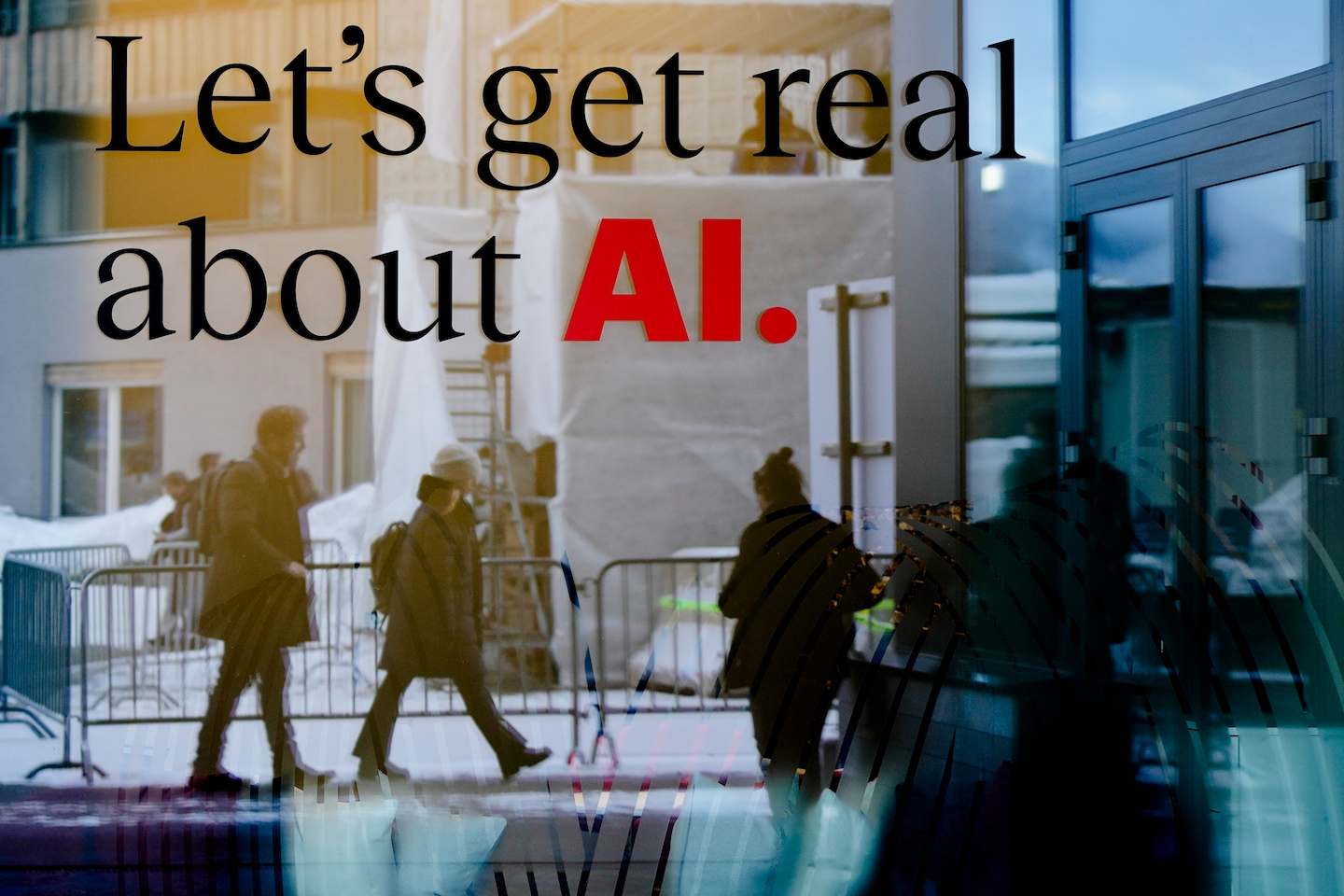DAVOS, Switzerland — ChatGPT emerged as a prominent figure at the previous year’s World Economic Forum, showcasing its capabilities in coding, email drafting, and speech writing, captivating the attendees in this luxurious alpine resort.
This year, while there is still considerable enthusiasm surrounding the vast economic opportunities presented by the technology, there is also a more realistic evaluation of its associated risks. Leaders from various sectors, including heads of state, billionaires, and CEOs, share concerns about the potential of this burgeoning technology to amplify misinformation, displace jobs, and widen the economic disparity between affluent and less privileged nations.
In contrast to the distant apprehensions of AI leading to the downfall of humanity, the focus has shifted towards the tangible dangers evidenced by the proliferation of AI-generated fake content and the automation of jobs in fields like copywriting and customer service. This shift in perspective has been accelerated by global initiatives aimed at regulating the rapidly advancing technology.
Chris Padilla, IBM’s vice president of government and regulatory affairs, noted the shift in discourse, stating, “Last year, the conversation was ‘gee whiz.’ Now, it’s about understanding the risks and what measures are necessary to establish trust in AI.”
The subject has become central to the discussions at the forum: Panels featuring AI CEOs such as Sam Altman are in high demand, and tech giants like Salesforce and IBM are actively promoting trustworthy AI through advertisements lining the snow-covered streets.
However, the escalating concerns regarding the risks associated with AI are overshadowing the tech industry’s promotional campaigns. The event commenced with Swiss President Viola Amherd advocating for “global governance of AI,” expressing worries about the technology’s potential to propagate disinformation during electoral processes. Across the street at a chic cafe set up by Microsoft, CEO Satya Nadella addressed fears of the AI revolution widening the economic gap, especially after an International Monetary Fund report highlighted the likelihood of increased inequality and social tensions due to AI advancements. Meanwhile, at the Alpine Inn nearby, Google CFO Ruth Porat pledged to collaborate with policymakers to establish “responsible regulation” and emphasized the company’s investments in retraining programs for workers.
Despite the calls for action, the limitations of this annual summit are evident as efforts to coordinate a unified global approach to AI regulation are hindered by economic rivalries between the leading AI powers, namely the United States and China.
Moreover, countries have divergent geopolitical interests when it comes to AI governance: Western nations are contemplating regulations that could benefit their domestic companies, while leaders in regions like India and South America view AI as a catalyst for economic growth.
The AI discourse mirrors a broader paradox looming over Davos, where attendees partake in lavish activities while grappling with pressing global issues such as conflicts in Ukraine and the Middle East, the rise of populism, and climate change threats.
In a speech delivered on Wednesday, U.N. Secretary General António Guterres highlighted the urgent need to address climate change and the challenges posed by generative AI, emphasizing the lack of a cohesive global strategy to tackle these issues due to geopolitical divides.
While governments have traditionally led innovation, they now lag behind in the AI race. Tech companies are forging ahead with AI advancements, prompting traditional institutions like banks, media firms, and accounting companies at Davos to explore ways to integrate AI into their operations.
The promenade at Davos serves as a barometer of emerging technologies, with AI taking center stage this year. Companies have transformed storefronts into meeting spaces, hosting discussions on AI advancements. This shift in focus from previous years dominated by terms like Web3, blockchain, and crypto to AI signifies the growing influence of AI in shaping future technologies.
Executives predict that AI will wield even greater influence by 2024, with the development of more sophisticated AI models driving innovation across various sectors. Despite the progress, concerns linger about potential misuse of AI for influencing elections. OpenAI’s Sam Altman expressed apprehensions about such misuse and emphasized the importance of swift responses and collaboration with external partners to address election-related threats.
While tech companies like OpenAI are taking steps to enhance election security, policymakers remain wary of the social implications of AI products. Eva Maydell, a member of the European Parliament, is working on recommendations for AI companies ahead of global elections, underscoring the importance of rebuilding trust in democratic processes amidst the challenges posed by disinformation.






